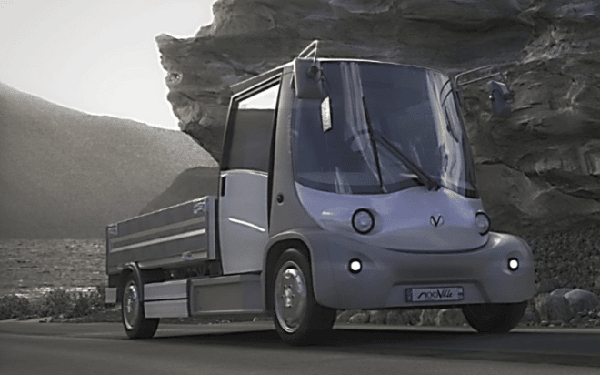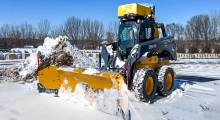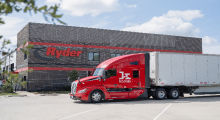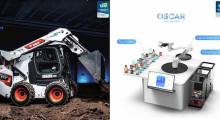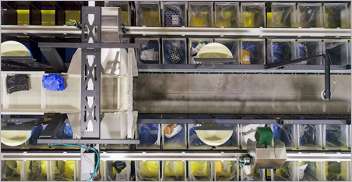One route to autonomous vehicles is to build delivery systems that can be automated later. Navya SA today announced that it has signed a contract with Muses Europe to assemble 300 electric utility vehicles with the plan to develop a self-driving version in the future.
“With an eye on the important place autonomous mobility will occupy in the years to come, it was considered essential to set in motion the automization process straight away,” stated Damien Biro, chairman of Muses Europe. “We are glad to partner with Navya on this key project, a company that has globally recognized expertise in autonomous mobility and is the only player on the market that combines two skills: the ability to integrate AD [autonomous driving] packs on an existing platform and the industrial logic to manufacture vehicles.”
Ellectramobilys set up Muses Europe to reshore the production of vehicles to France in reaction to organizational challenges and the sharp rise in costs between Europe and Asia. It holds license for the production and sale of the Muses vehicles for the European market.
Muses Europe builds network to produce delivery vehicles
Ellectramobilys designed the Muses electric vehicle to transport large volumes with agility while navigating in city centers. The company said its “innovative design provides greater energy efficiency and increased range, while at the same time reducing the quantity of batteries necessary, [and] thus their cost.”
Muses Europe said its team has more than 10 years of experience developing modular urban electric utility vehicles. The Muses utility vehicle has a central driving position, which is designed for ease of use and provides a 240° view. It also includes advanced driver-assistance systems (ADAS) suitable for last-mile deliveries. Muses Europe developed the modular vehicle with large international partners.
“The Muses utility vehicles are the result of a collaborative effort which brought together technical expertise, an open approach, and the general mindset of the automotive industry with the aim of developing an electric vehicle platform designed to reduce battery need,” Biro said. “The thinking behind our modular platform enables the co-development and industrialization and of scalable solutions with partners of all types and from all corners of the world.”
Muses Europe and Ellectramobilys have an industrial partnership with Yulon Motors in Taiwan. Yulon Group has more than 60 years of expertise and a complete value chain, from construction to spare parts and from commercialization to vehicle-related services, said Muses Europe.
The company is also working with Speedy Group, which has 43 years' experience and about 500 auto service centers across France. It is owned by tire manufacturer Bridgestone Corp.
Muses Europe said it is getting 80% of its added engineering and manufacturing value from French suppliers, including:
- Calip Group for the production of the cabins
- Bosch France for the assembly of the cabins
- F2J Stamping for the production of the chassis
Nava to assemble 300 vehicles
Navya will assemble the first pre-series run of 300 delivery vehicles at its Vénissieux plant near Lyon, France. This “will enable us, on the one hand, to optimize our production capacity and, on the other, allow us to strengthen our understanding of the vehicle's industrial processes with an eye to its future automization,” said the company.
“Navya is proud to participate on this project which is triply innovative, through its design, its environmental responsibility, and its partners and ecosystems selected in the interest of reducing supply chains,” said Sophie Desormière, CEO of Navya. “It underlines the challenge facing all automakers to prepare today for tomorrow's automized vehicle platforms.”
“Navya has the advantage of being able to put its expertise at their disposal and to work hand-in-hand with them to build a roadmap toward automization,” she added. “Our aim is to integrate our technologies on third-party platforms in response to increased market expectations and to move toward a large-scale economic model.”
Founded in 2014, Navya supplies autonomous mobility systems and associated services. With 280 employees in France, the U.S., and Singapore, the company is aiming to be the leading player in Level 4 autonomous passenger and goods transport.
It has developed Autonom Shuttle, dedicated to passenger transport. Since its launch, more than 200 units have been sold in 25 countries, as of Dec. 31, 2021. Navya designed the Autonom Tract to transport goods.
Navya claimed that its corporate social responsibility (CSR) approach is illustrated by its ISO 9001 certification in September 2021. The Valeo and Keolis groups are among the company's shareholders.
Article topics
Email Sign Up

